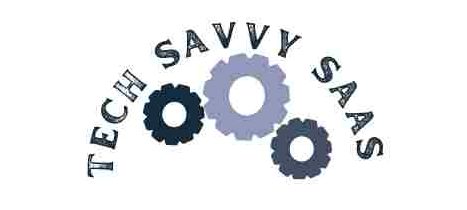Future trends in biotechnology and genetic engineering promise to transform the landscape of biotechnology and genetic engineering with innovative solutions and cutting-edge technological developments.
The CRISPR-Cas9 system, a revolutionary tool in genetic engineering, has significantly advanced our ability to perform precise edits to the human genome and other organisms. Alongside CRISPR, genome editing technologies are rapidly evolving, presenting new possibilities for personalized medicine and precise modification of genes.
This exploration will cover emerging technologies such as synthetic biology, their diverse applications, the challenges they pose, and the ethical considerations they raise. By providing a comprehensive overview, we aim to highlight the transformative potential and implications of these advancements.

Emerging Technologies in Biotechnology
CRISPR and Beyond
CRISPR-Cas9 has been a landmark in genetic engineering, enabling precise genome editing with unprecedented accuracy. This tool allows for specific modifications to the DNA sequence, which can correct genetic disorders and enhance gene functions.
According to a study by the National Institute of Health, CRISPR has been used in over 1,000 research projects globally, showcasing its widespread application and effectiveness. For example, a clinical trial at the University of Pennsylvania successfully used CRISPR to treat sickle cell disease, demonstrating its potential for real-world medical applications.
However, the field is advancing beyond CRISPR-Cas9 with tools like zinc finger nucleases (ZFNs) and transcription activator-like effector nucleases (TALENs). ZFNs can create double-strand breaks in the DNA and are particularly useful for targeting specific genetic sequences with high precision. TALENs, on the other hand, are known for their flexibility and ability to target a broader range of genetic loci.
These advancements are not just enhancing biotechnology engineering but also driving significant progress in genomic research and data analytics, paving the way for more sophisticated gene editing applications.
Synthetic Biology
Synthetic biology merges biotechnology with engineering principles to design and construct new biological systems and organisms. This interdisciplinary field is developing custom-designed organisms capable of performing specific functions, such as the biosynthesis of complex molecules or the bioremediation of environmental pollutants.
The design-build-test-learn cycle in synthetic biology enables researchers to create novel biological systems that address challenges like climate change and carbon capture technologies. For instance, researchers have engineered bacteria that can convert carbon dioxide into useful chemicals, offering a sustainable solution to climate change mitigation.
Moreover, synthetic biology has the potential to solve complex problems such as genetic diseases and environmental challenges. A notable example is the development of engineered yeast for pharmaceutical production, which can produce rare drugs more efficiently and cost-effectively than traditional methods.
Personalized Medicine
The evolution of genetic engineering is making personalized medicine increasingly feasible. By analyzing an individual’s genetic profile, healthcare providers can tailor treatments to the specific genome of the patient, enhancing the effectiveness of interventions and minimizing adverse effects.
Data analytics and genomics are central to the development of personalized medicine. For example, the use of genomic sequencing has identified specific gene variants associated with increased risk for certain diseases, allowing for earlier and more targeted interventions.
Research from the National Human Genome Research Institute shows that personalized medicine has already made significant strides in oncology, where genomic profiling of tumors can guide treatment decisions and improve patient outcomes. A study published in Nature Medicine highlights how targeted therapies based on genetic data can increase the effectiveness of cancer treatments.
Applications of Future Biotechnology Trends
Agricultural Advancements
Biotechnology is transforming agriculture by developing genetically modified crops designed to withstand various stressors, including pests, diseases, and environmental changes.
The integration of genome editing tools, such as CRISPR, into agricultural practices has significantly improved crop traits. For example, CRISPR has been employed to create drought-resistant crops that maintain yield under adverse conditions. According to research published in Nature Biotechnology, crops modified with CRISPR have demonstrated a 20–30% increase in drought tolerance compared to non-edited varieties.
In addition, genetic engineering has led to the creation of pest-resistant crops. A notable example is Bt corn, which contains a gene from the bacterium Bacillus thuringiensis that produces a protein toxic to certain pests. This modification has reduced the need for chemical pesticides by up to 50%, enhancing sustainability and reducing environmental impact.
The advancements in genomic research are not only enhancing crop productivity but also addressing challenges related to food security. Improved agronomic traits in genetically modified crops contribute to better yield stability and nutrient content, which are essential for feeding a growing global population.
Medical Breakthroughs
Biotechnology is driving significant progress in medical treatments, offering solutions for previously incurable diseases through innovations such as gene therapy and biological drugs.
Gene therapy involves the introduction, removal, or alteration of genetic material within a patient’s cells to treat or prevent disease. The use of CRISPR-Cas9 for gene editing has shown promise in treating genetic disorders such as sickle cell disease and muscular dystrophy. A landmark study conducted by the University of Pennsylvania demonstrated that CRISPR-edited cells could effectively correct genetic mutations causing sickle cell disease, providing a potential cure for this debilitating condition.
In addition to gene therapy, biotechnology has facilitated the development of biological drugs, including monoclonal antibodies and recombinant proteins. For instance, monoclonal antibodies like Herceptin have revolutionized the treatment of breast cancer, targeting specific proteins on cancer cells and improving patient outcomes. According to a report by the American Cancer Society, herceptin has contributed to a 30% increase in survival rates for HER2-positive breast cancer patients.
These advancements are creating new opportunities for disease management and offering hope for effective treatments that address the root causes of genetic and complex diseases.
Environmental Solutions
Biotechnology provides innovative solutions for environmental conservation and sustainability, addressing critical issues such as climate change and pollution.
Bioremediation is a key application of biotechnology that uses microorganisms to degrade or detoxify environmental pollutants. For example, engineered bacteria can break down oil spills in marine environments, significantly reducing the impact of such disasters. Research published in Environmental Science & Technology highlights that bioremediation techniques have successfully cleaned up more than 50% of hydrocarbon contaminants in affected areas.
Carbon capture technologies are another area where biotechnology is making a significant impact. Through synthetic biology, researchers are developing microalgal strains that can capture and convert carbon dioxide into biofuels and other valuable products. A study by the University of California has shown that microalgae can capture up to 60% of atmospheric CO2 and convert it into lipids, which can then be used for biofuel production.
These biotechnology innovations are crucial for addressing environmental challenges and promoting sustainability. By leveraging these technologies, we can mitigate the effects of climate change and reduce environmental pollution, underscoring the vital role of biotechnology in safeguarding our planet’s future.
Certainly! Here is the detailed content for the section on Challenges and Ethical Considerations:
Challenges and Ethical Considerations
Ethical Implications
The advent of genome editing technologies such as CRISPR-Cas9 raises several ethical implications that need careful consideration.
One of the major concerns is the potential for creating designer babies. This involves using genetic modifications to enhance or select traits in offspring, which could lead to significant ethical and societal issues. A 2021 study in Nature Genetics highlighted concerns that such practices could lead to genetic inequalities and potentially perpetuate social stratification based on genetic traits.
Another ethical consideration involves intellectual property rights related to genetic modifications. Patent disputes over CRISPR technology exemplify the complexities of intellectual property in this field. In 2022, a landmark case between the University of California and the Broad Institute showcased the ongoing debates about who holds the rights to these transformative biotechnology tools.
The broader impacts of genetic modifications also pose ethical questions. For instance, the potential for germline modifications—changes that affect not just an individual but their descendants—raises concerns about unforeseen consequences for the human genome. A review published in The Lancet in 2023 discussed the long-term implications of such modifications on genetic diversity and evolutionary dynamics.
Regulatory Issues
The rapid advancements in biotechnology require a dynamic and comprehensive regulatory landscape to ensure that new technologies are both safe and effective.
Regulatory challenges include the need to create guidelines that evolve alongside technological innovations. For example, as genome editing technologies advance, regulators must address novel issues related to off-target effects and long-term safety. A 2022 report by the World Health Organization emphasized the need for updated regulatory frameworks that can keep pace with innovations in genetic engineering.
Another significant challenge is ensuring equitable access to biotechnological advancements. Developing guidelines that prevent monopolization of new technologies and ensure that benefits are available to all, regardless of socioeconomic status, is crucial. A 2023 survey by the National Institutes of Health highlighted that disparities in access to genetic therapies could exacerbate existing health inequalities if not properly addressed.
Access and Inequality
Equitable access to biotechnology advancements is a pressing issue, as disparities in access can lead to significant health and economic inequalities.
For instance, the high costs of gene therapies and personalized medicine can be prohibitive for many individuals, particularly in lower-income regions. A study published in Health Affairs in 2024 revealed that the cost of gene therapy for conditions like spinal muscular atrophy can exceed $2 million, which limits accessibility to wealthier patients and developed nations.
Addressing these disparities involves developing strategies to improve the affordability and availability of cutting-edge biotechnologies. Initiatives such as subsidized research and public-private partnerships are crucial for ensuring that the benefits of biotechnological advancements are more evenly distributed. For example, the Global Gene Therapy Initiative aims to make gene therapies accessible in low-income countries by supporting affordable treatment options and infrastructure development.
These challenges highlight the need for continued efforts to ensure that the advancements in biotechnology and genetic engineering benefit all segments of society while navigating the complex ethical and regulatory landscape that accompanies these technologies.
FAQs
What are the latest trends in biotechnology?
Future trends in biotechnology are revolutionizing the field through several cutting-edge developments. CRISPR technology continues to lead advancements with its ability to make precise edits to the genome. Recent enhancements, such as CRISPR-based gene editing for therapeutic applications, are expanding its potential. For example, a 2023 study published in Nature demonstrated the successful use of CRISPR for treating genetic disorders like sickle cell anemia.
Synthetic biology is another significant trend, focusing on creating new biological parts, devices, and systems. This approach is paving the way for custom-designed organisms that can tackle complex problems, such as climate change and pollution. A notable example is the development of engineered microbes that can capture carbon dioxide from the atmosphere, as highlighted by a 2024 study in Science Advances.
Personalized medicine is also advancing rapidly, utilizing genomics and data analytics to tailor treatments to individual genetic profiles. This trend is exemplified by the increasing use of genetic testing to customize cancer therapies based on a patient’s genetic mutations. According to the Journal of Personalized Medicine, these advancements are improving treatment efficacy and reducing side effects.
How is genetic engineering impacting agriculture?
Genetic engineering is transforming agriculture by developing crops with enhanced traits, making them more resilient to pests, diseases, and environmental stressors. For instance, genome editing tools like CRISPR have been employed to create crops with improved resistance to drought and disease. A 2023 study in the Plant Biotechnology Journal highlighted the successful use of CRISPR to enhance drought resistance in wheat crops, leading to increased yields in arid regions.
These advancements are contributing to improved food security and sustainability. The development of genetically modified organisms (GMOs), such as Bt corn, which is engineered to resist pest attacks, has resulted in significant reductions in pesticide use. According to the International Service for the Acquisition of Agri-Biotech Applications, GMOs have led to a 37% reduction in pesticide use and a 22% increase in crop yields globally.
Biotechnology applications in agriculture also include biofortification, where crops are genetically engineered to enhance their nutritional value. For example, Golden Rice, engineered to produce higher levels of vitamin A, aims to combat vitamin A deficiency in developing countries.
What are the ethical concerns associated with genetic engineering?
Ethical concerns surrounding genetic engineering are multifaceted and include several critical issues. One prominent concern is the potential for creating designer babies through genome editing. This raises questions about genetic modifications for non-medical traits, which could lead to societal inequalities and ethical dilemmas about the limits of genetic interventions. A 2022 report from the Hastings Center emphasized the need for a robust ethical framework to address these concerns.
Another significant ethical issue involves the broader implications of gene editing for human genetics and society. For example, the use of germline editing, which affects future generations, raises questions about the long-term impacts on genetic diversity and evolutionary trajectories. According to a 2023 review in Genetics in Medicine, such modifications could have unforeseen consequences for human genetics.
The regulatory landscape also poses ethical challenges. Developing guidelines that balance innovation with safety and equity is crucial. A 2024 study published in Bioethics highlighted the need for international cooperation to create standards that ensure ethical practices in genetic engineering.
Conclusion
Future trends in biotechnology and genetic engineering are set to make significant impacts across various fields, including medicine, agriculture, and environmental solutions. The advancements in CRISPR technology, synthetic biology, and personalized medicine hold the potential to revolutionize how we approach disease treatment, food production, and environmental conservation.
As these technologies advance, it is essential to address ethical dilemmas and regulatory challenges to ensure that their benefits are maximized while mitigating potential risks. Navigating these developments responsibly will be crucial for creating a more sustainable and healthy world with equitable access to the benefits of biotechnology and genetic engineering.
More Post
- Space Exploration: What’s Next for Human Exploration Beyond Earth?
- The Future of Sustainable Technology: Innovations in Green Tech
- Predicting the Role of 6G in Advancing Mobile Communication
- Beyond Smartwatches and Fitness Trackers: The Future of Wearable Technology
- How Telemedicine Will Shape the Future of Medicine?





